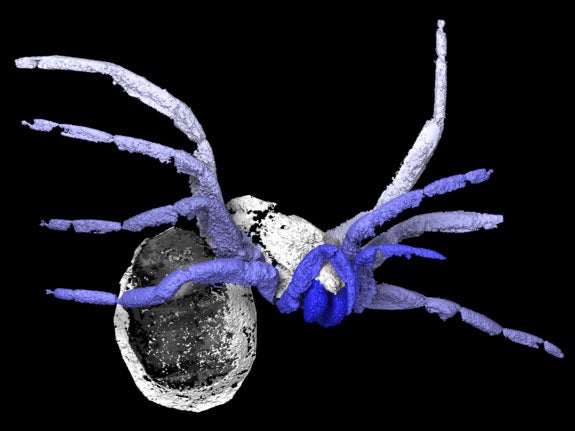Ancient spider fossil lets scientists see 305 million years into the past
The spider lived over 300 million years before modern humans first evolved

The discovery of a 305 million-year-old fossil could lead to a greater understanding of how modern spiders evolved, scientists say.
The new (and long-dead) species has been named Idmonarachne brasieri, after figures from Greek mythology, and was found fossilised in rock in Montceau-les-Mines in France.
A team of researchers from institutions in Europe and the US travelled to France to scan the fossil, and found that the ancient creature "occupies a key position in the evolution of spiders," according to Russell Garwood from the University of Manchester.
While it's not a "true spider," according to Garwood, its anatomy has given researchers an insight into the stages of evolution its ancestors went through to become the spiders we know today.
As a Proceedings of the Royal Society B paper puts it, the "remarkable" fossil lacks spinnerets, or silk-spinning organs found on the underside of modern spiders.
Instead, it's believed the Idmonarachne laid down its silk in sheets, lacking any of the control over its web that spiders have today.
In effect, this recent discovery adds another link to the chain of spider evolution, occupying the space between the rudimentary silk production of early insects and the fine web-spinning skills of spiders today.
The Idmonarachne lived over 300 million years before modern humans evolved, so it's truly a rare discovery. The fossil currently sits in the National Museum of Natural History in Paris.
Join our commenting forum
Join thought-provoking conversations, follow other Independent readers and see their replies
Comments
Bookmark popover
Removed from bookmarks